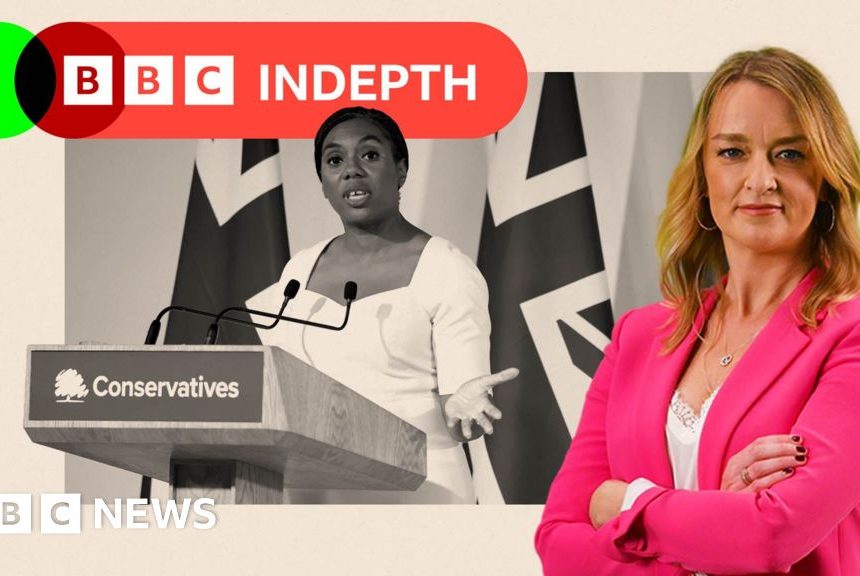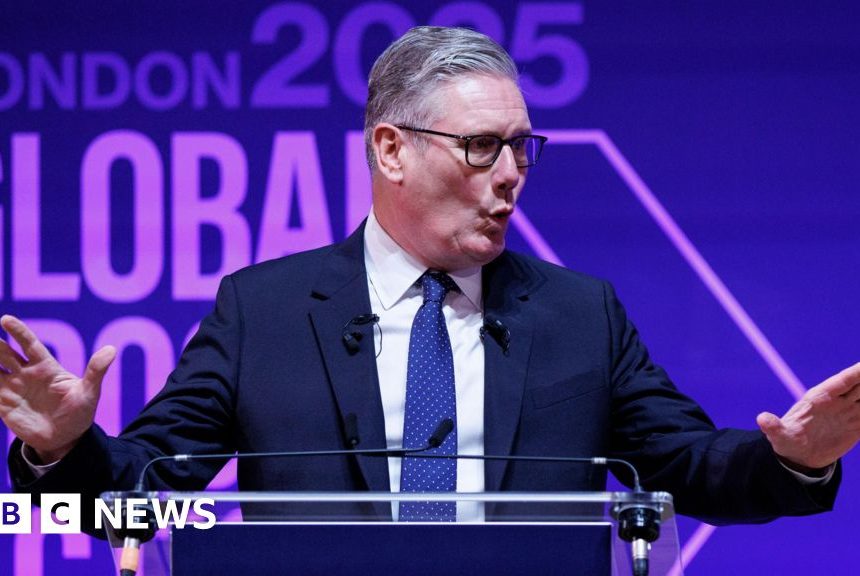Conservative leader Kemi Badenoch has called on the prime minister to sack Rachel Reeves if she puts up taxes at next month’s Budget.
In its election manifesto last year Labour promised not to increase taxes on “working people”, including National Insurance, income tax rates and VAT.
But during Prime Minister’s Questions on Wednesday, Sir Keir Starmer declined to repeat the pledge.
The chancellor is widely expected to raise taxes in her Budget on 26 November, after gloomy economic forecasts and a series of U-turns on welfare cuts made it harder for her to meet her own tax and spending rules.
The Conservatives have accused Labour of already breaking its manifesto commitments by announcing £40bn of tax rises in last year’s Budget, including a hike in the rate of National Insurance paid by employers.
The party also pointed to comments made by Reeves last November, when she insisted she would not be “coming back with more borrowing or more taxes”.
Badenoch said “that now looks like a lie as she is gearing up to impose more punishing tax hikes”.
At a rally in central London, marking one year since last year’s Budget, the Conservative leader told supporters: “If she puts up tax, give Reeves the axe.”
She added that her party’s recently-announced blueprint for cutting government spending by £47bn a year after 2029 showed they had a plan to “get spending under control”.
The party says around half of this would come from cutting welfare spending, with other savings from measures including reducing the size of the Civil Service, cutting back on overseas aid and reducing the cost of the asylum system.
Badenoch said the savings would be used to help boost economic growth and fund pledges like scrapping stamp duty on the purchase of main homes.
However, speaking to journalists after the rally, Badenoch would not commit to reversing any income tax rises Labour may impose.
“We don’t know what kind of mess Labour is going to be leaving in four years’ time,” she said.
Challenged that the Conservatives also increased taxes after promising not to when they were in office, Badenoch blamed the Covid pandemic.
“We spent £400bn paying people to stay at home. Everybody understands why we spent that money and that’s why taxes went up. We didn’t want to raise taxes,” she told the BBC.
A Labour spokesperson said: “We’ll take no lectures from the Conservatives – they crashed the economy, sent mortgages rocketing and left NHS waiting lists at record highs. Yet they still haven’t apologised and they’ve done nothing to rebuild their economic credibility.
“Kemi Badenoch is pretending she can find £47bn in cuts with no detail, to fund tax cuts she can’t pay for. The Tories simply aren’t serious and they’ve learned no lessons.”
The Tories have also attacked Reeves after she apologised for failing to get a licence that was required to rent out her home after an “inadvertent error”.
The chancellor has said she applied for the licence “as soon as it was brought to my attention”.
Badenoch said that if Reeves is found to have broken the law, she should resign.
The government is facing a bigger-than-expected hole in the public finances as it prepares for next month’s Budget.
It is understood the Office for Budget Responsibility (OBR) is set to revise down its predictions for productivity of the UK economy, leading to a £20bn gap in meeting the chancellor’s tax and spending rules.
There has been growing speculation the government could break its manifesto pledge and increase income tax.
Some senior Labour figures are privately suggesting to Reeves that now is the time to make the case for such a move.
They argue it is still years until the next general election, it could raise a lot of money and, unlike more targeted tax rises such as last year’s changes to inheritance tax on farmland, would not create a single noisy lobby group in opposition.
But the idea leaves other Labour figures deeply nervous because it would amount to a spectacular breach of their pre-election promise, which ministers have repeated many times since.
Some also worry it could depress the economy further at a time of weak economic growth.


